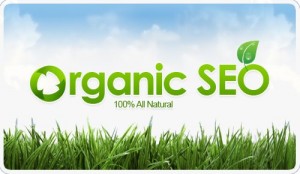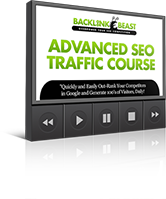In the old days of the Internet, there were no SEO Consultants, automated systems, or all that high technology stuff. Those were the days of IBM (or “It’s Best done Manually) and Organic SEO.
The only difference between Organic SEO and the SEO we now know is that Organic SEO is a manual process vs. the current automated processes of page submission and alteration that characterizes “modern” SEO. Organic SEO focuses on promoting websites on the Natural search engine results also known as organic results in contrast with sponsored links (Pay-Per-Click/PPC).
Organic SEO is based on a clear understanding of fundamental concepts, including:
- Search engines and how they work
Obviously, you can not practice Organic SEO if you don’t even know how the first two letters of SEO (i.e., Search Engine) works. The rank of a website is statistically determined by what is termed as “keyword density” or the ratio of keywords to the total number of words of content in a website.
- Search Engine Optimization
You can’t have Organic SEO without the SEO part, which stands what Search Engine Optimization. SEO’s main goal is simple: bring as many visitors to your website as possible by exerting influence on the search engine to position your website as close to the top of the list as possible.
- Viral Marketing
Viral Marketing is a strategy to exponentially increase the number of visitors to your website from a small base that you have developed from your initial Organic SEO strategy. This strategy is certainly a handy component of the arsenal of a practitioner of Organic SEO.
- Optimized Domain Names
Getting a keyword-rich domain name is every Organic SEO consultant’s dream because it carries so much weight in the relevance scale. The problem, of course, is that there is a very high likelihood that the “good” domain names already belong to someone, and this makes an Organic SEO specialist life more difficult.
- Keyword Research
The only difference between Organic SEO and the SEO we now know is that Organic SEO is a manual process vs. the current automated processes of page submission and alteration that characterizes “modern” SEO. Organic SEO focuses on promoting websites on the Natural search engine results also known as organic results in contrast with sponsored links (Pay-Per-Click/PPC). Organic SEO, if you really think about is a “purist” approach to website optimization because nothing is a “black box”. Obviously, you can not practice Organic SEO if you don’t even know how the first two letters of SEO (i.e., Search Engine) works. You can’t have Organic SEO without the SEO part, which stands what Search Engine Optimization.
Because it plays a major role in determining your optimization strategy, this is the first step on the list of to-dos for an Organic SEO practitioner. Since it takes months for any optimization strategy to take effect, an Organic SEO expert’s efforts will be wasted if he makes the mistake of optimizing a website based on keywords that are not as popular as he assumed.
Because it requires a deep understanding of the fundamentals that those utilizing automated systems take for granted, becoming an Organic SEO specialist is not an easy task at all. There is a major advantage, however, of Organic SEO vs. the “lazy man’s” SEO: A clear understanding of the concepts allows you to analyze SEO situations more accurately and come up with strategies that are more responsive and appropriate to your website’s needs.







